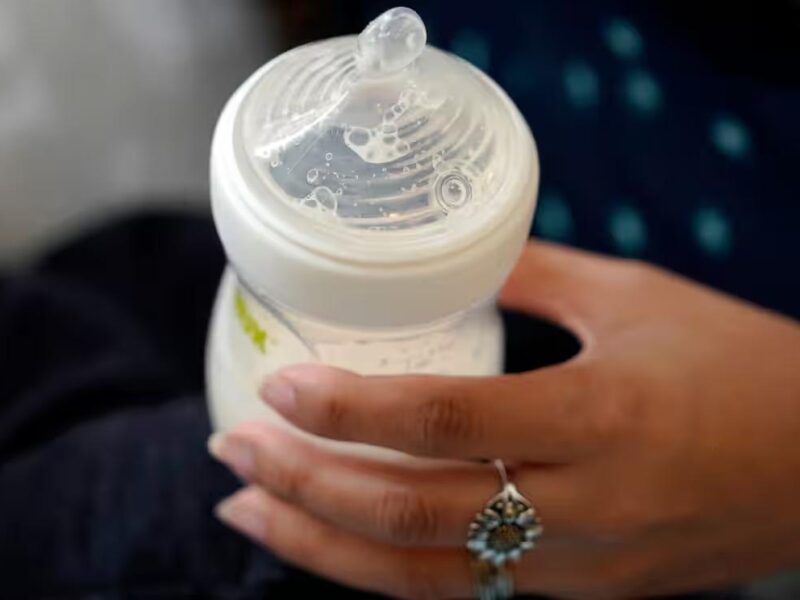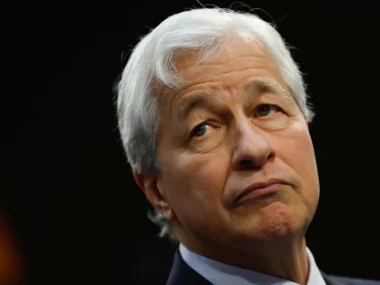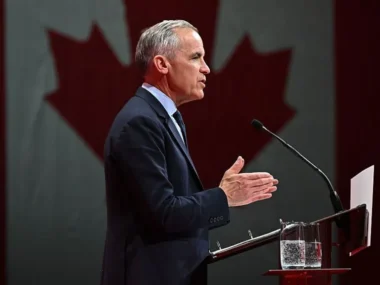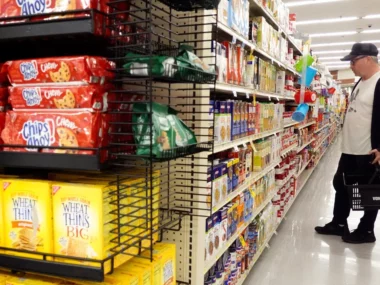Popular grocery brands raised the prices of a number of products more quickly than costs increased, which prompted CMA to make a move.
The market watchdog for competition is looking into the baby formula industry after discovering that producers increased prices by 25% in just two years and increased their profit margins despite the crisis in the cost of living.
Danone and Nestlé are the only two large corporations, controlling 85% of the market. The Competition and Markets Authority expressed worry that few parents were choosing the less expensive options when they were offered and that there was an excessive lack of choice in the market, with very few own-label products.
The CMA discovered that if families shopped about, they could save more than £500 in a child’s first year of life.
The watchdog’s report on the inflation in the grocery industry coincided with the announcement of the probe. According to the CMA’s findings, during the previous two years, nearly 75% of businesses producing well-known brands in industries including baby milk, mayonnaise, baked beans, and pet food raised their prices more quickly than their costs did, which allowed them to keep significant profit margins.
The results will heighten claims that companies have exacerbated the issue in the cost of living by artificially driving up prices in order to preserve profits—a practice referred to as “greedflation.”
“Food price inflation has put huge strain on household budgets, so it is vital competition issues arent adding to the problem,” stated CMA CEO Sarah Cardell. Own-label goods typically offer less expensive options, even if premium companies have typically increased their pricing more than their own cost increases.
In contrast to consumers, who typically look for less expensive solutions, parents are hesitant to switch brands when it comes to formula. Cardell stated, “Unlike other products examined, there is very limited availability of own-brand alternatives and little evidence of parents switching to cheaper branded options as prices have risen.”
“We worry that providers could not have strong incentives to sell baby formula at competitive pricing, and that parents might not always have the information they need to make educated decisions. We’ll look into this more and see if any restrictions need to be changed to make sure parents can obtain the greatest bargain.
Nestlé, the parent company of SMA and Little Steps, holds a 14% portion of the UK baby formula market, while Danone, the maker of the Cow & Gate and Aptamil brands, holds a 71% stake. With 9% of the market, Kendamil is the only British manufacturer of baby milk products.
With a 5% stake, HiPP is the fourth-largest company in the market.
Due to stringent government regulations on ingredients, formula manufacturers have to adhere to price differences across brands, according to the CMA.
The CMA stated that it had the greatest concerns regarding infant milk out of the ten product categories it thoroughly investigated. Next year, it will release its research findings on the industry.
A representative for Danone UK & Ireland stated that the company has observed that the baby formula industry is competitive. “We acknowledge the difficulties parents face as a result of inflation,” they continued. We have put a lot of effort into making savings, absorbing the large cost increases we have seen, and minimizing price rises at this trying time. We intend to maintain our communication with the CMA in the upcoming months.
As part of its mission to “keep products affordable and accessible for parents while still paying fair prices to our suppliers, including farmers,” Nestlé stated that it welcomed the CMA study and remained open to “all constructive dialogue to help parents in the most effective way possible.”
When contacted for comment, HiPP and Kendamil did not reply right away.
Despite dropping to 10.1% in October—well above the 4.6% inflation rate overall—food price inflation is still running at historically high levels. According to consumer organization Which?, supermarket prices have risen by more than 25% over the previous two years.
Similar to its July investigation into retail competition in the grocery sector, the watchdog’s most recent report concluded that most branded manufacturers’ overall profit margins had decreased since 2021 and that the majority of the food inflation since early 2021 had been caused by passing on rising input costs to consumers.
Nonetheless, it found a number of product categories where branded items’ price increases have surpassed their costs.
Which? expressed concerns that consumers who rely on convenience stores and smaller shops may not have access to reasonably priced options and stated that they would be surprised to hear about the profit-increasing strategies employed by major firms.
According to Which?’s head of food policy Sue Davies, “many people who have been struggling to deal with food price inflation will find this shocking.” “The evidence supports concerns that consumers who frequently shop at the big supermarkets’ convenience store branches—which rarely carry the lowest-priced own-brand lines—may find it difficult to find more reasonably priced food.”
In January, the CMA announced that it also planned to begin looking into the pricing of loyalty programs, which restrict supermarkets’ discounts to those who enroll in them.
Supermarkets are using loyalty program pricing more frequently, according to Cardell, meaning that price incentives are exclusively available to customers who have loyalty cards. “This begs several questions regarding how loyalty program pricing affects customers and the level of competition.”











